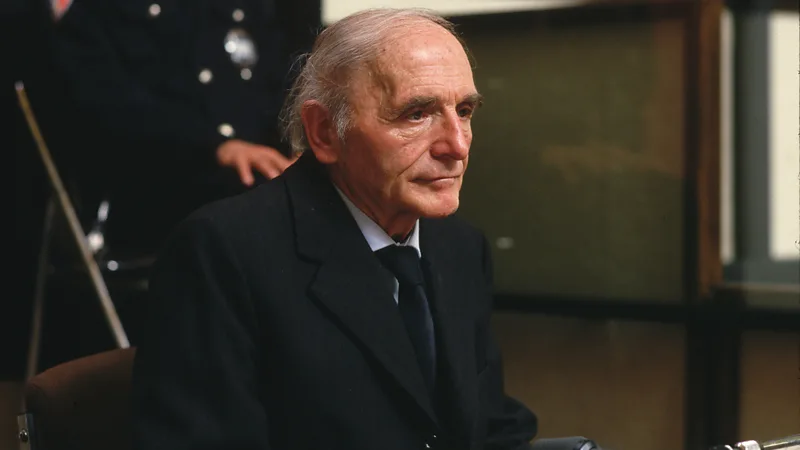In July 1987, 38 years ago this week, a Nazi war criminal, the “Butcher of Lyon”, was sentenced to life in prison by a French court for crimes against humanity. Four years earlier, in 1983, the BBC reported on how France felt about this reckoning with its dark past.
Klaus Barbie was known as the “Butcher of Lyon”. As the Gestapo chief in Lyon, France, during World War Two, he had been tasked with shattering the French Resistance and ridding the German-occupied city of its Jewish population. He became notorious for his cruelty and sadism, often taking a personal role in torturing and killing prisoners. He sent some 7,500 French Jews and Resistance fighters to concentration camps and executed 4,000 more.
Warning: This article contains details of torture that some may find upsetting.
When the war ended, despite being wanted by French authorities for his horrific war crimes, he was hired by US intelligence as an informant on communist networks. They shielded him, allowing him to live in the US zone of occupied Germany under a false identity. In 1951, Barbie managed to escape prosecution by fleeing to South America via “The Ratline” that the US used to smuggle Nazis out of postwar Europe. He lived openly in Bolivia for decades until he was tracked down by a Nazi-hunting couple, Serge Klarsfeld and his wife Beate. In 1983, France finally managed to extradite him to face justice. And in July 1987, 38 years ago this week, he was finally sentenced to life in prison.
But Barbie’s prosecution was far from a straightforward matter for France. The Nazi’s return raised questions of guilt and complicity, focusing the nation’s attention on the choices its citizens had made while living under German occupation. In 1983, four years before Barbie was sentenced, BBC reporter Bernard Falk travelled to Lyon to talk to people “whose lives were touched by the Gestapo commander’s savagery” and the complicated and painful issues the forthcoming Barbie trial had resurfaced.


